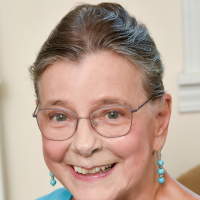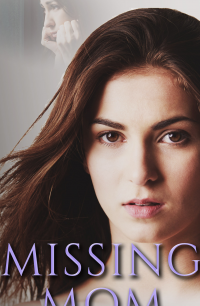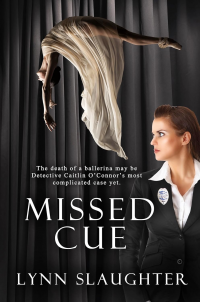Lynn Slaughter Interview Published on: 19, Jun 2024
 Can you tell us about your transition from a professional dancer and dance educator to becoming a writer?
Can you tell us about your transition from a professional dancer and dance educator to becoming a writer?
I’ve always enjoyed research and writing. While I was still dancing and teaching at a performing arts high school, I began moonlighting as a freelancer, mostly writing feature articles for regional parenting magazines on the challenges of parenting adolescents.
But honestly, I did not think I possessed the fiction gene! However, when age and injury led to my retirement from dance, I got this idea for a young adult novel about an aspiring ballet dancer with major friendship and family issues. In retrospect, I think this project was a way of dealing with my grief over no longer being able to dance. It ultimately became my first published novel, WHILE I DANCED.
Working on the project hooked me on writing fiction, and I ended up returning to school to earn my MFA in Writing Popular Fiction from Seton Hill University. I’ve just kept going ever since.
What inspired you to pursue writing mysteries, particularly for both young adults and adults?As a child, I devoured Nancy Drew and Hardy Boy mysteries and have loved reading mysteries ever since, so I guess it’s not surprising that I was drawn to the genre when I began writing fiction. While offering engaging puzzles and suspense, mysteries offer us the reassurance that ultimately, justice will prevail. (Sadly, this is not always true in real life!)
Most of my work has been for young adults. Teenagers have always been my favorite age group to work with, and I find the adolescent years are such a dramatic and important time in our lives when we’re trying to figure out basic questions about our identity—who we want to be and become, and whom we want to love.
How does your background in dance influence your writing, especially in crafting scenes and character development?Great question. Obviously, when characters are involved in dance, my background lends authenticity to their character development and dance-related scenes. In my experience, professional dancers or those who aspire to make a career in dance, are passionate about the field and extremely disciplined, perseverant, and hard-working. It is also very competitive, and that can lead to jealousies and the perennial need to cope with rejection. In addition, dancers (and other young people serious about pursuing the arts) often meet with resistance from parents and caregivers about wanting to pursue professional artistic careers. Parental resistance appeared as a major issue in WHILE I DANCED, as well as LEISHA’S SONG.
Your latest book, “Missed Cue,” is your first mystery for adults. What was the driving force behind this story?I call “Missed Cue” my “accidental novel.” Since I had a background in the performing arts, a mystery writing friend challenged me to write a short story for Malice Domestic’s anthology, Murder Most Theatrical. After the story appeared, I felt I was not really done with it. The confines of short fiction meant that I couldn’t delve into character development as much as I wanted to, particularly with respect to the police detective, Caitlin O’Connor. So, I decided to expand the story into a novel. I ended up liking Caitlin so much that I’m currently working on a sequel in which she tackles a new case.
Your young adult novels have won awards. What do you think sets them apart in the genre, and what themes do you often explore in your work for young adults?I’m not sure what sets my work apart. I do know I really care about my characters, and I think when writers care deeply about the people they write about, their readers are apt to care as well. I can tell you I’ve never been interested in writing a mystery that doesn’t examine other problems and challenges that affect the protagonist. I’m particularly fascinated by family dynamics. For example, in Deadly Setup, the protagonist is not only dealing with being wrongly accused of killing her mother’s fiancé. She’s also dealing with the corrosive effects of parental neglect from a narcissistic parent who is simply unwilling or unable to provide her with the unconditional support, attention, and acceptance she so desperately needs and wants.
“Missed Cue” involves the world of theater. Did you draw from personal experiences or research extensively for this setting?Mostly, that came from personal experience of having danced professionally. In addition, I taught at a performing arts high school and spent seven summers as a counselor at a residential program for high school students gifted in the performing arts, and these experiences were helpful as well.
Can you share a bit about your writing process? Do you have any rituals or habits that help you get into the creative zone?I usually start out with the wisp of an idea, often drawn from something I’ve personally experienced or witnessed. For example, many years ago, an adult dance student shared with me that in high school, her twin had been murdered, and the crime had never been solved. Her story stuck with me and years later, I built upon her story to develop It Should Have Been You.
Once I get an idea for a premise, I spend a great deal of time developing my characters. I pay particular attention to their backstories and what has shaped their personalities and issues. I’ve found that plot complications grow out of first focusing on character development. I owe this insight to Elizabeth George and her excellent craft books, Write Away and Mastering the Process: From Idea to Novel.
In terms of rituals that I find helpful, I generally close my office door, light a candle, put on some music, and read a page or two from Susan Shaughnessy’s Walking on Alligators, A Book of Meditations for Writers. Then I boot up my computer and re-read and do some light editing on the previous day’s work. That usually helps me get into the flow of my project and continue on with new pages.
What challenges did you face while writing “Missed Cue,” and how did you overcome them?A continuing personal challenge is my anxiety before I begin writing on any given day! I work on this by using my writing rituals (described above) and by reminding myself of that oft-repeated writing advice that: “You can’t fix a blank page.”
In addition, since I’d never written a police procedural before, I spent a fair amount of time researching the conduct of criminal investigations.
As a member of Sisters in Crime, how do you think being involved in the writing community has impacted your journey as an author?My experience has been that writers are almost always very supportive of one another. In any endeavor, it’s helpful to find your tribe and swap advice, assistance, and encouragement. I also belong to a wonderful critique group and have learned so much about writing from reading the work of other group members. In addition, I enjoy paying it forward by featuring other authors on my website.
Your protagonist in “Missed Cue” navigates through mysteries. How do you ensure your plots remain engaging and unpredictable for readers?Like other mystery authors, I work on creating red herrings, alternatives to the actual perpetrators of a crime. I try to make them interesting and compelling, so the reader isn’t sure who the culprit is until close to the end.
Are there any particular authors or books that have influenced your writing style or storytelling approach?As mentioned above, I’ve been very influenced by Elizabeth George’s craft books in my approach to storytelling. I love the characters in classic young adult novels by luminaries in the field like Judy Blume, Chris Crutcher, Sarah Dessen, and Gayle Forman.
Beyond writing, you’re also passionate about chocolate and your husband’s cooking. Do these interests ever find their way into your stories?Yes! I absolutely love food, and my friends tease me that there are always a ton of descriptions of whatever my characters are eating.
What advice would you give to aspiring writers, especially those looking to delve into the mystery genre?I strongly advise joining mystery writing associations, such as Mystery Writers of America and Sisters in Crime. Sisters in Crime has an online subgroup, the Guppies, which offers a ton of resources—articles, classes, advice, and a list serve where you can ask questions, etc. Reading extensively, particularly in your chosen genre, is essential. Attending mystery writing conferences such as Killer Nashville is also very helpful. The biggest piece of advice I’d give is to do lots and lots of writing on a regular basis. The only way to get better at writing is to write!
How do you balance your time between writing, community involvement, and personal interests?I think that’s a continuing challenge! I’m not always good at that, but as I’ve gotten older, I have made some progress at saying “no” to things that eat up my writing time and I’m not enthusiastic about. I think you have to carve out your priorities and make sure you’re honoring them. I feel as though I’m a continuous “work-in-progress” when it comes to finding a good balance.
What are some tools you use for book promotions? How did you come to know about AllAuthor and what are your thoughts on this website?For my last three books, I worked with a publicist from BooksForward who was excellent. Working with a publicist is not inexpensive, but for someone like me who stinks at marketing myself, it’s been worthwhile. I enjoy writing articles about writing, and that’s been helpful in my promotion efforts.
I think AllAuthor is a terrific and wonderful resource both for readers and writers. I think I originally heard about it via an email from AllAuthor.
Share Lynn Slaughter's interview
Lynn Slaughter is addicted to the arts, chocolate, and her husband’s cooking. After a long career as a professional dancer and dance educator, she earned her MFA in Writing Popular Fiction from Seton Hill University. "Missed Cue" (Melange Books) is her first mystery for adults. Proud parent to two grown sons and grandparent to five, Lynn continues to write passionately, exploring new stories and characters.







